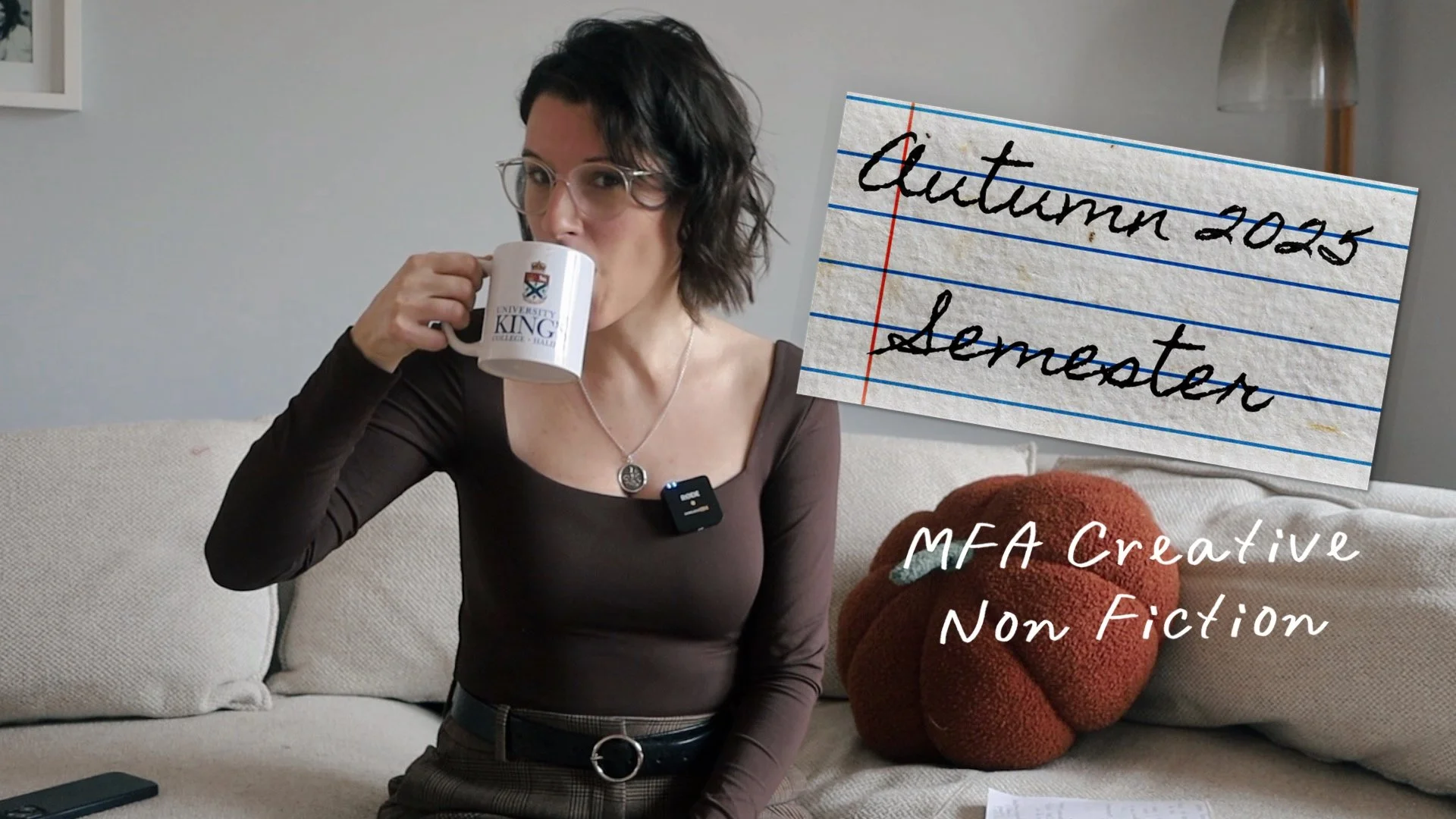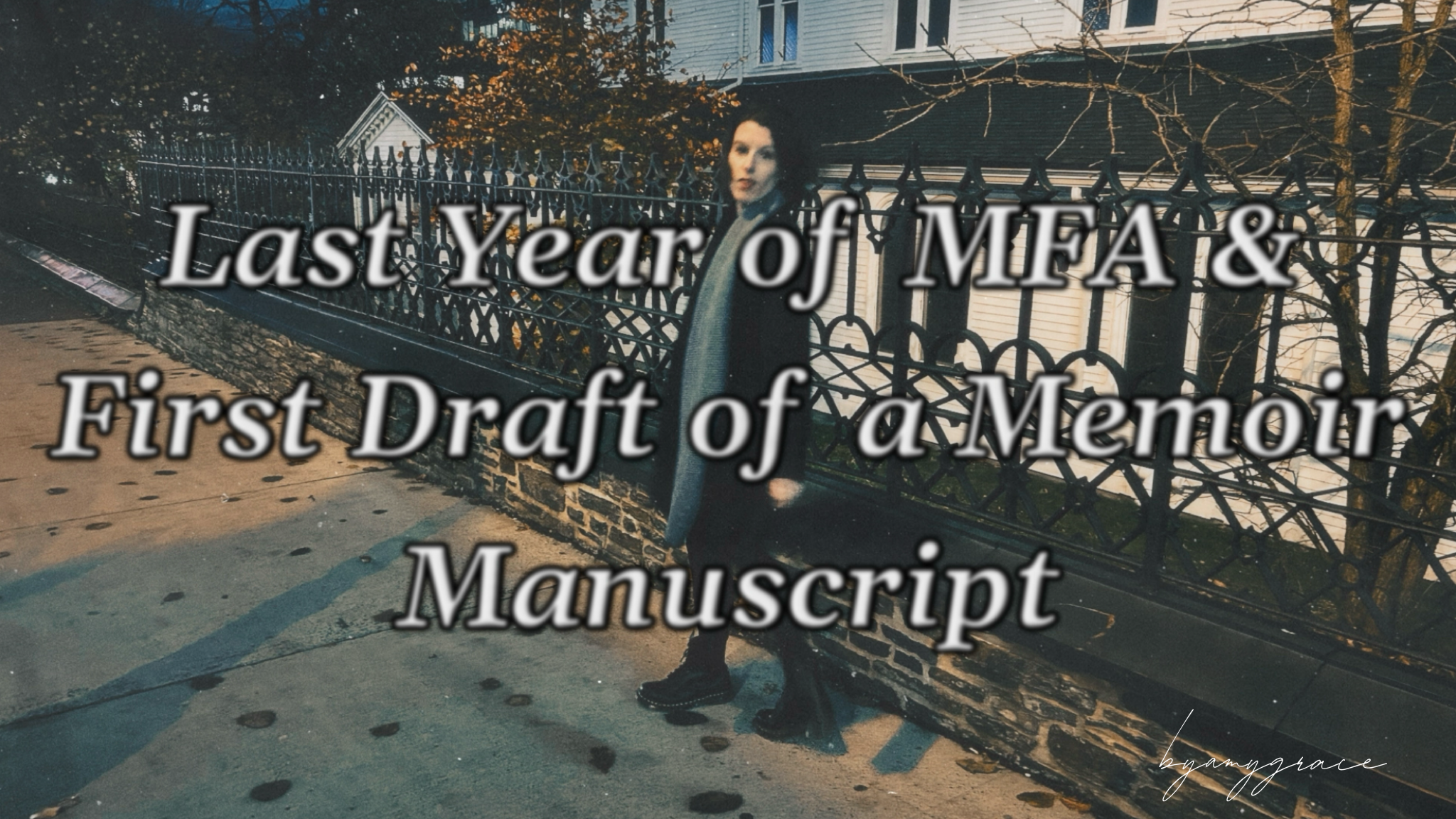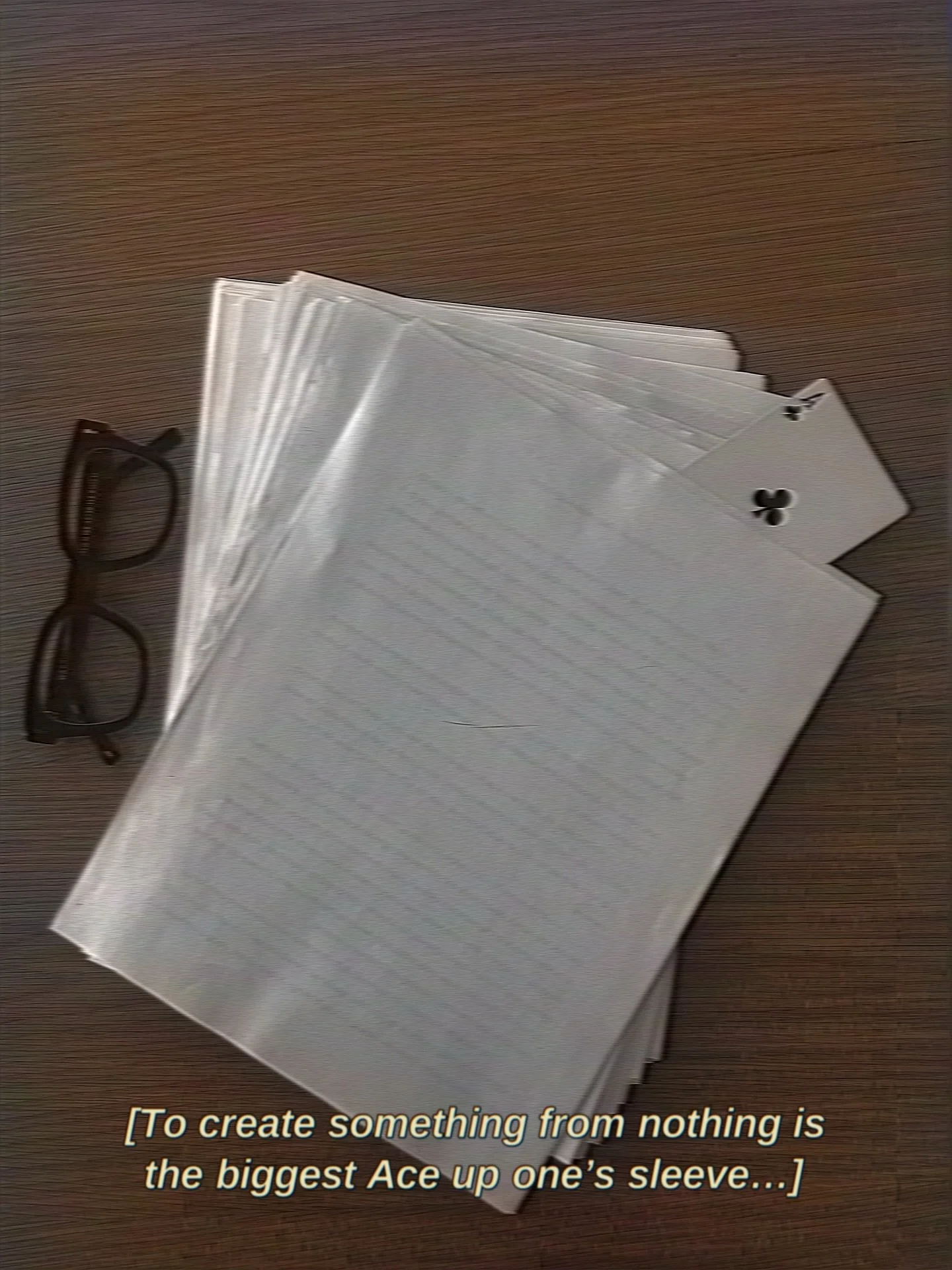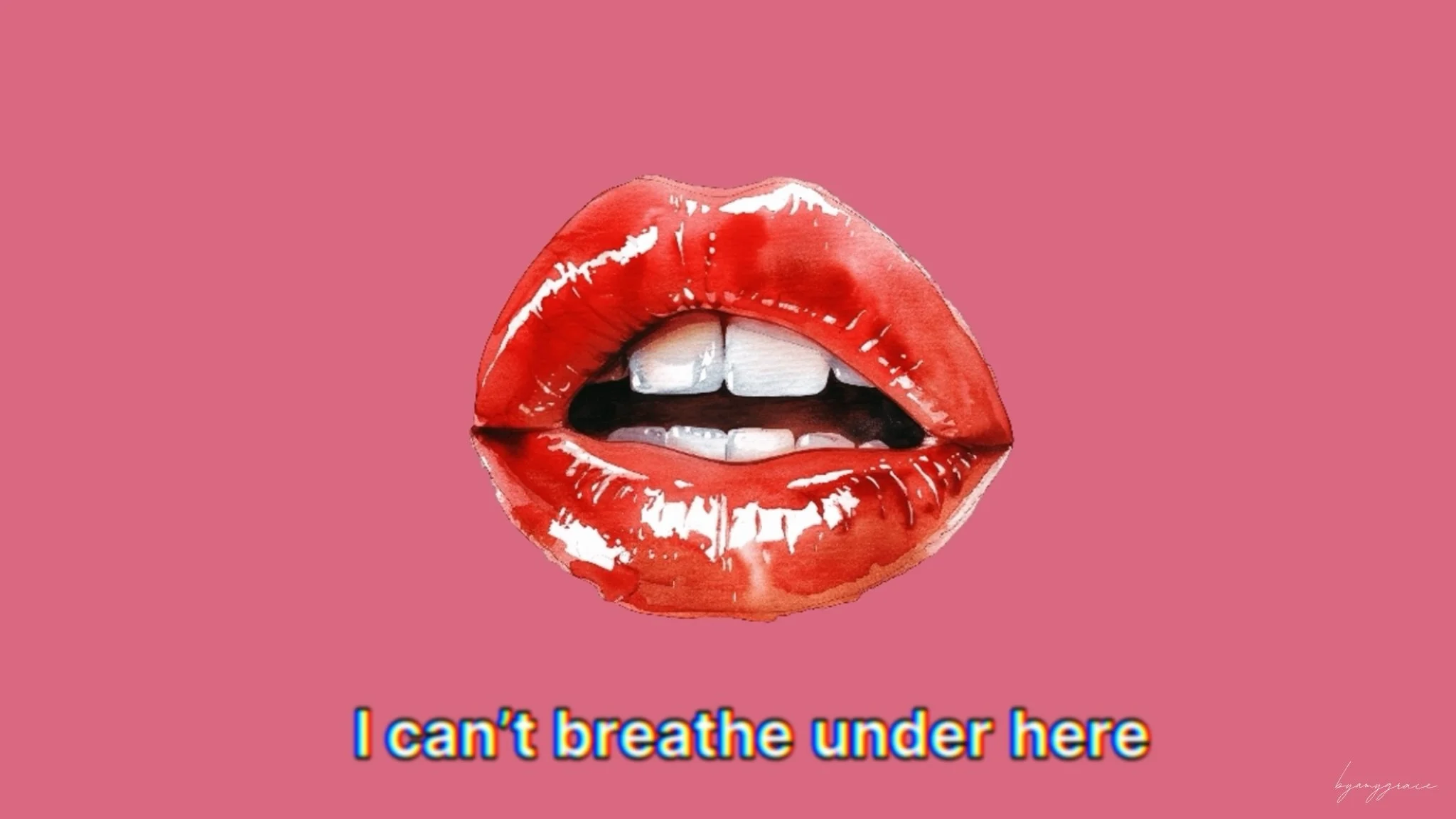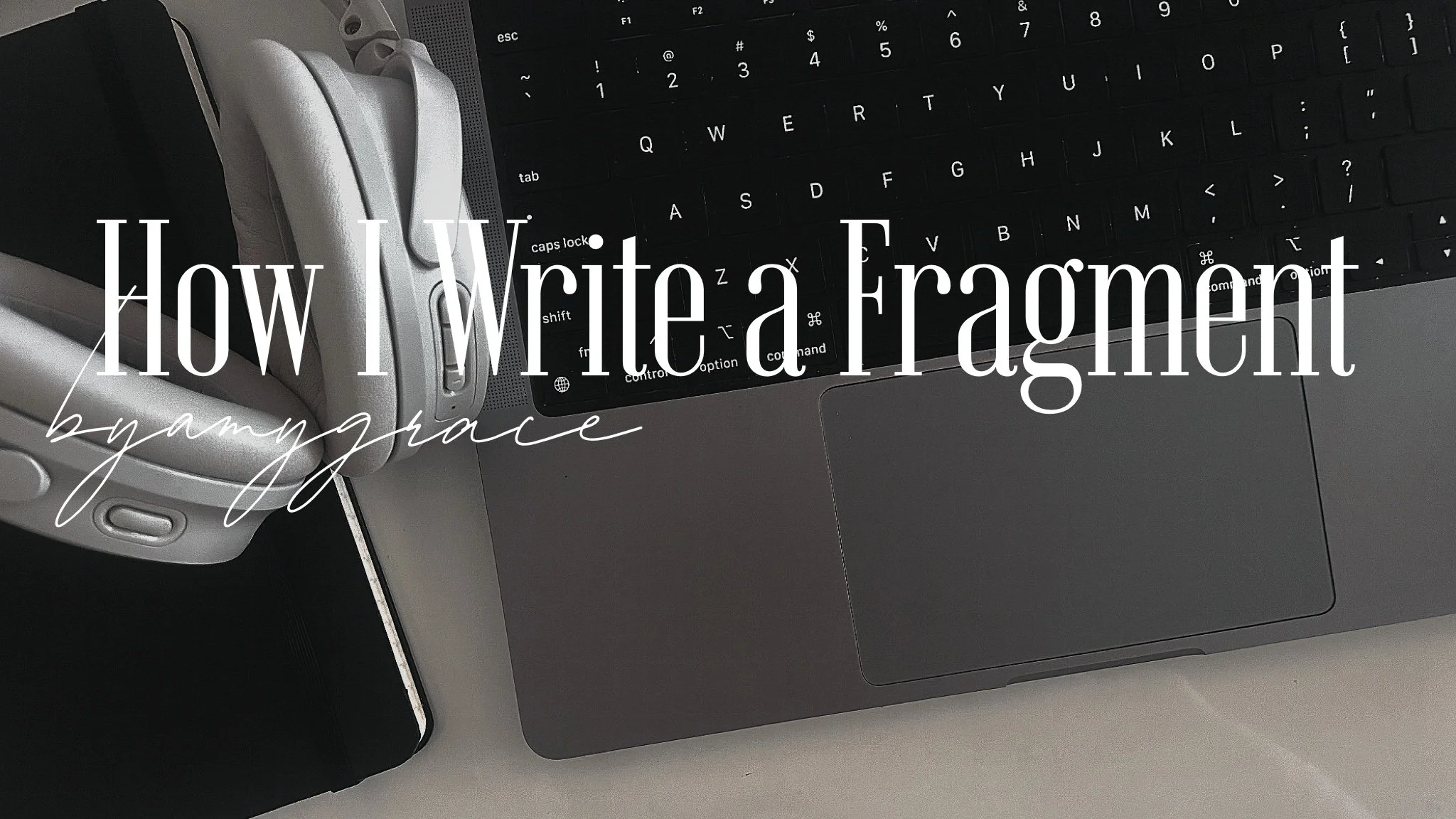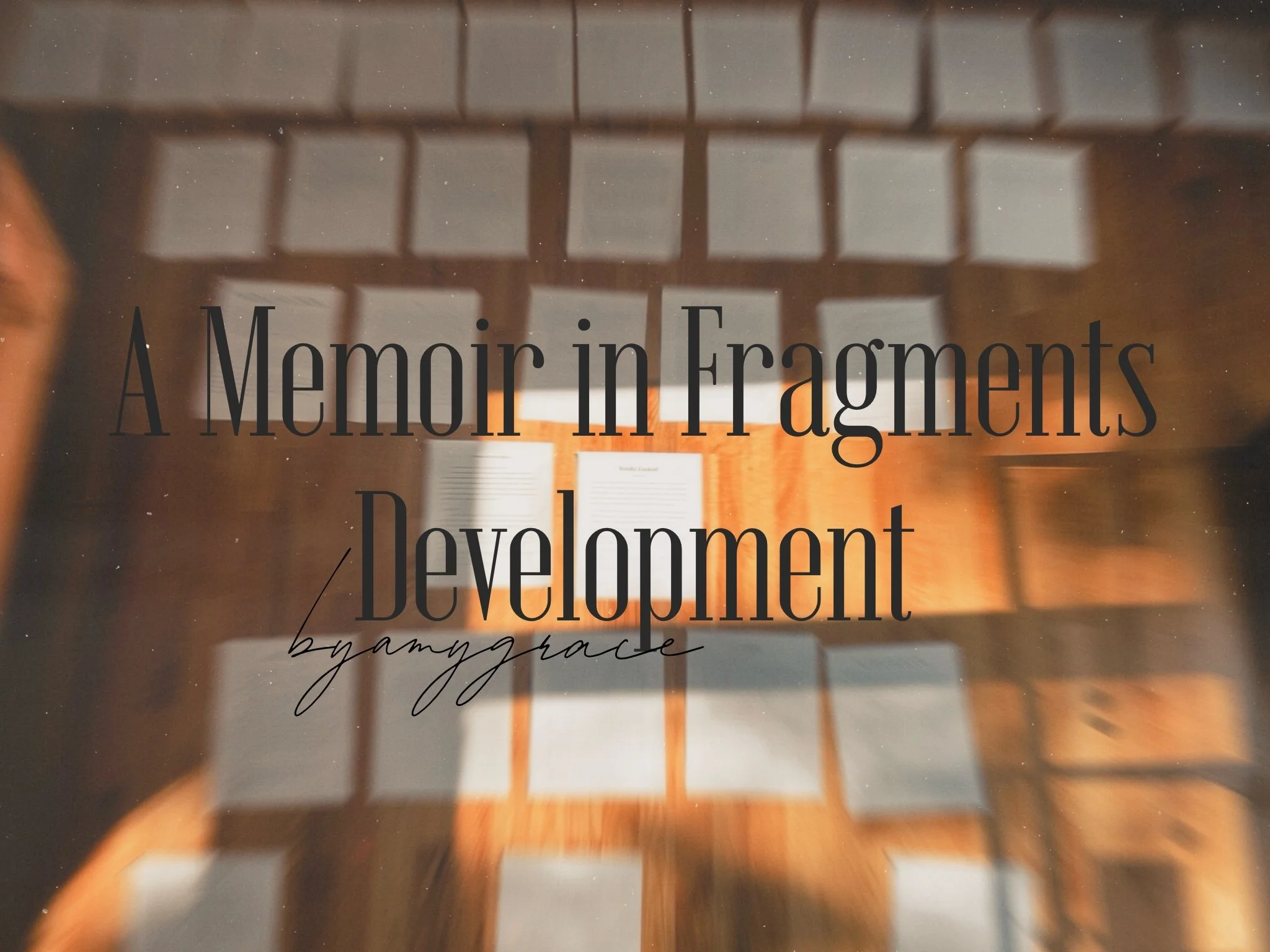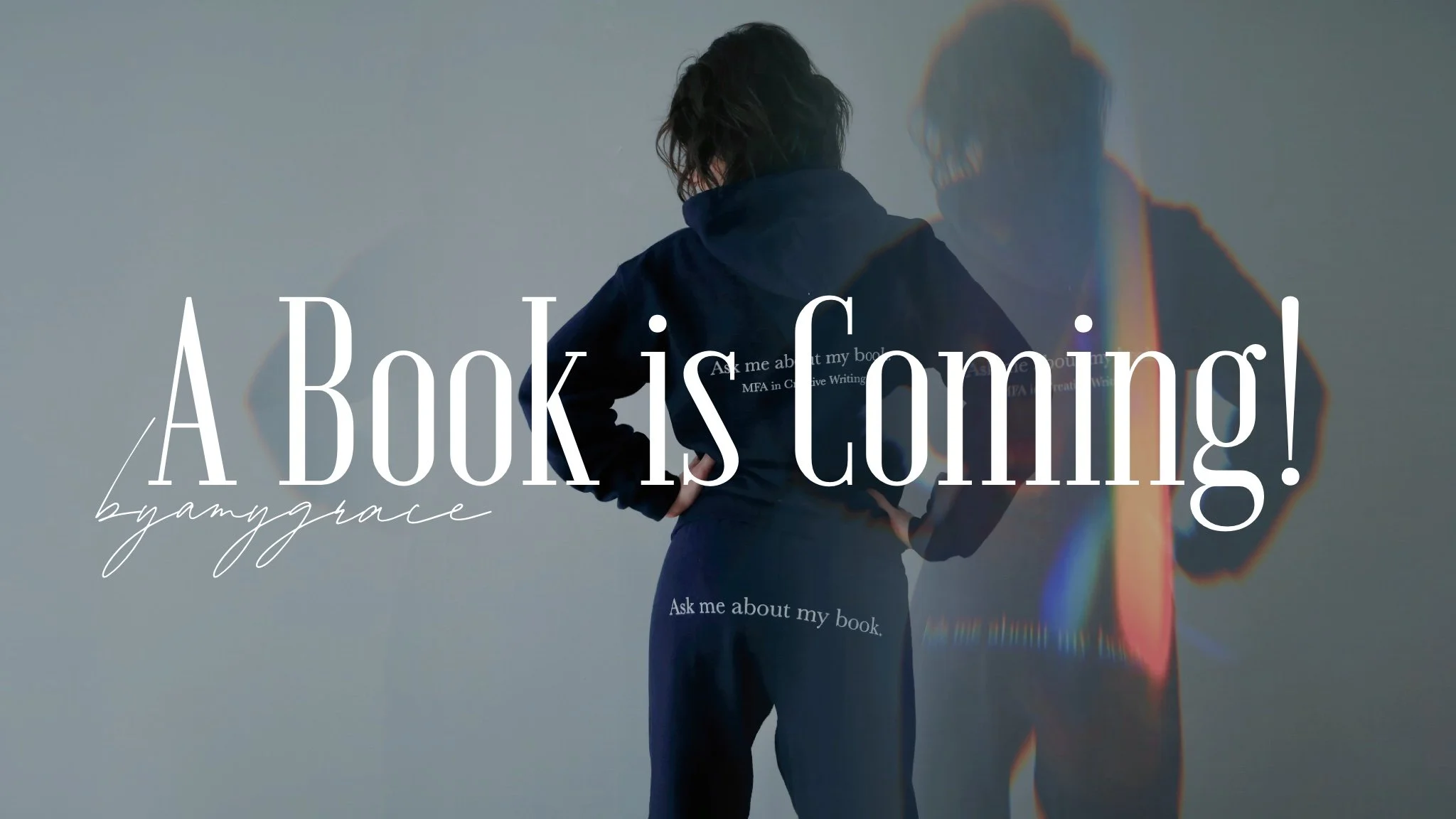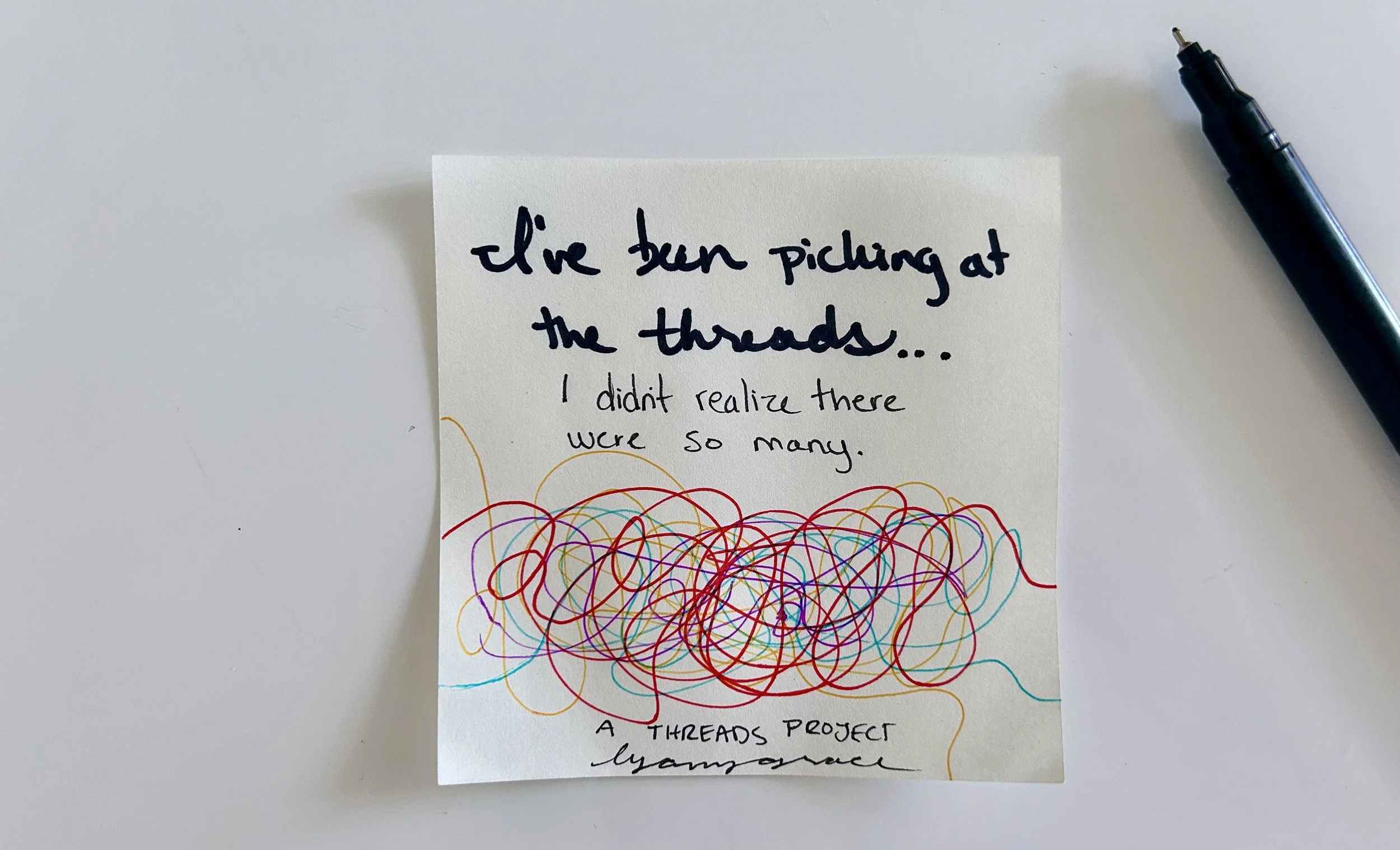Personal reflections on the Autumn 2025 Semester of the University of King's College Master's of Fine Arts Creative Non Fiction program.
When I graduated from high school, it was 2007. The year the iPhone was launched, Queen Elizabeth II became the longest-reigning monarch, and Amy Winehouse’s Back to Black record was playing on the radio. At the time, for someone who remained living with their parents after high school, applying for financial support grants and a student loan was not an option. I would need to prove that the parents I still had medical insurance under could not afford to fund a university-level education. I learned early on in high school that I could not prove this. So I put my head down and focused on what I believed to be a more sustainable, attainable, and practical profession through a local community college, funded by shifts at Tim Hortons and Dairy Queen, and two Summer internships as a children and community organizer at my local church, respectively.
It goes without saying that I did not believe a university-level education was in the cards for me, not only financially, but intellectually. I had drunk from the Kool-Aid that to be a successful woman, I needed to focus on getting a quiet job as a service provider & or helper, procreate with a loyal husband and to host family gatherings happily- and yet almost two decades later, here we are. Only one semester of an MFA left, and a full 80,000-plus words of a manuscript written later.
Nothing has been easy about this process thus far, but everything has been rewarding. To soak in the craft of stories, to share in the work of what it means to rip one's heart open and mine the wreckage for the material that will ultimately be crushed into fragments and built back into something, layer by layer, that others can absorb with their eyes, minds and spirits. A journey of a lifetime.
As one artist said to me after what was an obviously long day of his own work:
”There is a place for and a need at times, after toxins have built up for years and years, for a spiritually led creative vomit.”
The idea that what I have been processing internally for the last twenty years has been churning away and finally, to have let it out, at least so that I can think clearly, process better and source the ‘creative inspiration’ for what is of value, is something that I am relieved and excited to turn my attention to.
I can’t say where this manuscript is heading in the end, how the pages will be read and what the final product will ultimately look and sound like - but what I can know is that the creative act I am making by showing up and seeing this Master’s program through along with this manuscript is an act of honouring the spiritual compulsion that is creativity. To create something from nothing is the biggest Ace up one’s sleeve and I’ll be spending my lifetime studying the act of it.
We are all born into frameworks and ways of being.
It just so happened that mine was restricting not only my individuality, but the very breath inside me.
A suffocating weight layered in verses, unspoken rules, raised hands, altar calls, undiagnosed and overlooked mental illnesses, prayers and attendance expectations.
The ’90s evangelical purity culture gave me the rule book, the Bible gave me the expectations, and the family tree gave me the coping mechanisms.
A corset was made to keep one tight, upright and in place.
Until the moment one dared to loosen the strings and discovered just how restricted one was.
But breath has a way of breaking through.
In my memoir, I’m exploring how I found mine.
Contrary to popular belief, writing chronologically isn’t always the best way to tell a story.
I would argue it’s rarely the best way unless you are writing a history book or a systems manual of some kind. No one tells a story in order. Our memories and thoughts don’t work that way.
The same goes for the process of my fragments for my memoir.
1. I decide on the theme.
Before I sit down to write, I decide what I need to write next. This is generally what is pressing on my mind and is usually decided while I am showering the night before or the morning of.
*Showers and walks are where most of my clear thinking is found.
2. I make a list.
Once I have decided what I am about to write, I make a list of all of the possible scenes, thoughts, words, quotes and ideas this theme brings up. For example:
Birthdays
- homemade cake.
- Streamers
- Dad’s Disney Voices
- Video camera
- Elementary school friends
These prompts don’t need to mean anything to anyone else, but to me, they allow me to see visually in my mind a variety of scenes. Once I am satisfied with the list, I decide which is best to begin with. I return to the concept: “Come in late, and leave early.” This concept helps create momentum and urgency in my writing and often allows me to introduce an intense scene that I can enter late and then expand upon.
3. I sit down to write.
No later than the day after I write the list, do I sit down to write the fragment. It’s important to me that I feel the urgency to write the fragment, which is why I bounce around. There are weeks I do not want to write about heavier topics, and it is then that I turn to lighter, amusing themes. Either way, I never make a fragment list and leave it waiting. I make sure to write it as soon as possible.
4. Review and Expand.
After I have written all I can in that fragment, I re-read it and expand. Rarely does this happen on the day of. Most of the time, this is the following day to let my mind sit with the material I have created. As I re-read, I often find patches of writing that need more explanation, scenes that are missing thoughts or need thoughts to be re-ordered.
5. I pass to my partner.
The first person who reviews my writing is and has always been my partner. With a more technical but still artistic mind, he often catches things I do not and helps me tidy up the copy in a way that I intend it to be read. In all honesty, I cannot be relied upon to create the cleanest copy while also excavating my life for all of these fragments.
*He is also the first in line to support my work, thus it works well that he is the best first person to read what I have written.
6. I review and expand again.
Once he sends back his edits, questions, and suggestions, I re-read, edit, and expand where needed. By then, my first draft should be complete.
7. I submit to my mentor.
The final draft is submitted to my mentor for their edits, thoughts, comments, etc. It is here that I then take the first draft and create a second, hopefully cleaner copy, ready for an agent.
I entered the MFA Creative Non-Fiction program with one project, and then was shaken awake on the first day when they said:
“You are here for a reason. Don’t write the book you can write without us. Write the book you need our support for.”
This echoed in my mind during residency, pitching days, first semester assignments and as I wrote the first pages of my book.
It turns out that once I went deeper into the process of what I wanted to put on paper, I was looking at a memoir. At first, I thought it was a memoir through essays, and now, at about three-quarters of the way through the first draft process, I can see that it is in fragments.
What I am working on isn’t a chronological journey of my experiences and reflections, but a nuanced inspection of my evangelical-influenced upbringing in a Canadian east coast mega church, how that intermingles with inherited family trauma and the struggle to find an identity as a girl through to adulthood. On the outside, this all feels very whitewashed. Very WASPY at its core, and yet with each fragment, I start to understand more and more not just how quiet the damage is but how deep it has gone.
I am not the first who has put pen to paper to try to unravel how a religion was interwoven into every aspect of her upbringing and family, and I certainly won’t be the last. Still, hopefully, I will put words to something that on the outside is passed on with a shrug, but on the inside, for many of us, is the death of a thousand cuts.
So if you need me -
I’ll be on the floor, sorting the shards of glass that once caused incredible pain and finally making them into something worth reading, something worth understanding and something that will provide words for the desire to heal.
*…and if you know me and how I journey through life, there will be winks added - because even in the darkness, there is always just enough humour to flip to the next page.
Onwards,
Personal reflections on the Winter 2025 Residency of the University of King's College Master's of Fine Arts Creative Non Fiction program.
It’s time you knew…
I am not just sitting through classes about writing… I am also writing a book of essays.
I can’t tell you the working title of this book (although if you pay attention, you may pick up on some of it).
I can’t tell you everything that will be included, but rest assured, if it made a mark on my life, odds are higher it will find its way in.
I can’t promise I won’t discuss the irony, the political, the upside-down religiosity of evangelicals, and the consistently overbearing patriarchy that has laced itself around me and so many of us like a corset.
Forcing our breath to become shallow,
our voices weak…and oh-
That’s how they keep us swooning like Victorian damsels ?!?!?!!!
I can’t promise a lot of things, but I can promise you that it will be a deeply provocative, if not also witty, read on the death-by-a-thousand-cuts moments women and other like-minded persons face in the world and the cultures that raise them.
I can promise that it will be a personal deep dive that sheds light on the importance and awareness of individuality, mental health and the quiet damage of an evangelical upbringing.
Onwards,
Amy Grace
An Accidental Feminist
I’ve been picking at the threads…
I didn’t realize there were so many.
- A Threads Project
byamygrace

